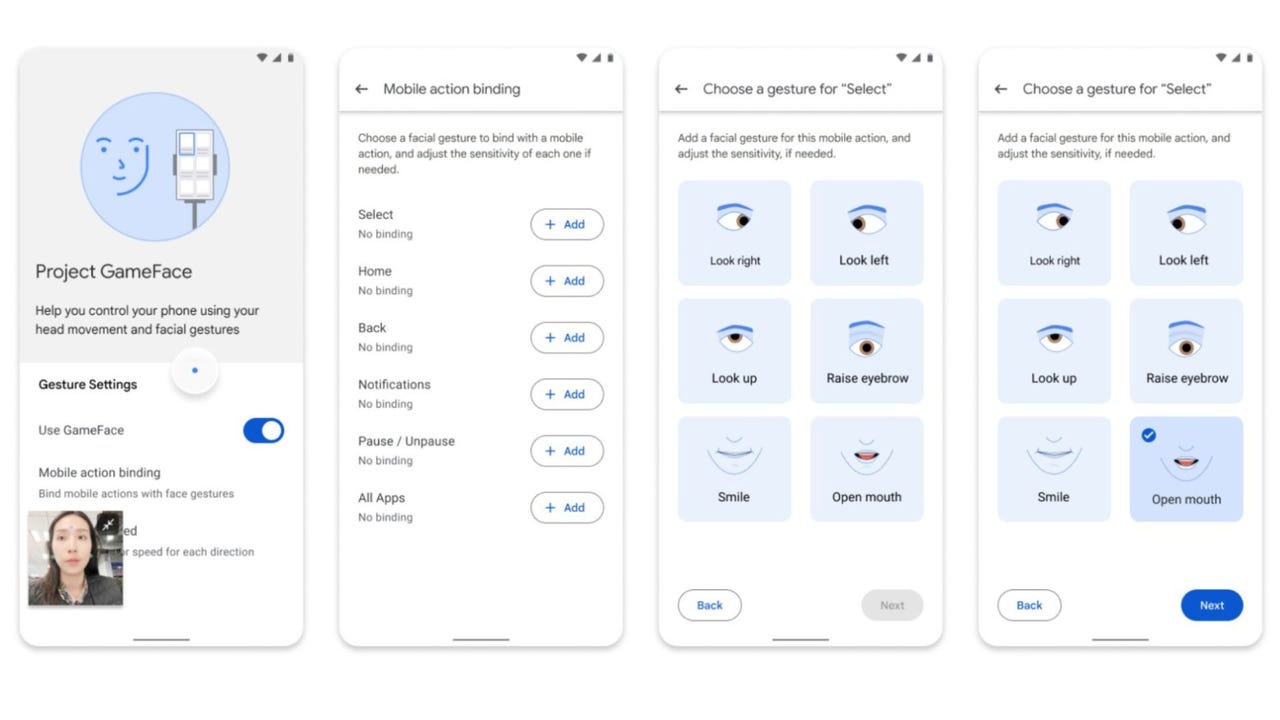
Android 15 is here, and among the upgrades that Google is adding to its operating system is improved keyboard and mouse support.
The company is taking that a step further though, and introducing hands-free cursor support for Android.
Also: Apple’s new accessibility features will let you control an iPhone with your eyes
Called Project Gameface, the feature has been a significant leap in gaming accessibility since its introduction on desktop computers in 2023. Essentially, it’s an open-source hands-free mouse that people can control with their head and face. Raising your eyebrows, for example, lets you click and drag, opening your mouth moves the cursor, and so on. It’s very similar to a feature Apple just introduced that lets you control an iPhone with your eyes.
Now it’s coming to Android.
While it can still be used for gaming, the mobile phone version of this tool assists with more day-to-day functionality – like sending messages, browsing social media, or navigating apps.
To help design this new tool, Google worked with Incluzza — a company that supports people with disabilities — to understand accessibility needs and explore the nuances of how persons with disabilities use Android devices.
Project Gameface uses a Face Landmarks Detection API from MediaPipe and the phone’s selfie camera to analyze a person’s face, looking for one of 52 different facial gestures that can be mapped to different controls.
Also: The best Android phones to buy: Expert tested
For the Windows version of Project Gameface, Google noted, facial expressions are tied to common click actions – a fairly limited number. But bringing the tool to Android means supporting a much larger catalog of movements such as swiping left or right, tapping the home button, long pressing, and more. Along with touch inputs, there are global actions like “Go back” and “Switch apps.”
The only caveat is that app developers must build support for Project Gameface right into apps. If support isn’t built in, the app won’t be navigable.
“We’re excited to see the potential of Project Gameface and can’t wait for developers and enterprises to leverage it to build new experiences,” Google said. The code for Gameface is now open-sourced on Github.




















+ There are no comments
Add yours